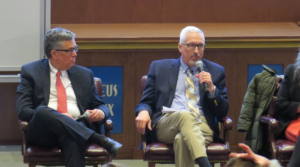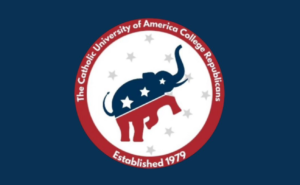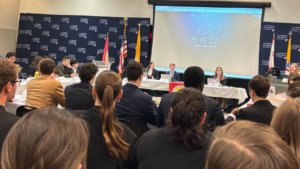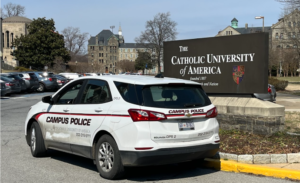Accommodations for Hearing-Impaired Viewers of White House Coronavirus Briefings

Courtesy of CNN
By Eva Lynch
Many Americans are uncomfortable with the uncertainty of the current circumstances, and for many, that discomfort is mitigated by the information presented at the daily White House coronavirus briefings. But for one group of Americans, the deaf and hearing-impaired, that discomfort isn’t mitigated so easily.
The most recent data from the U.S. Census Bureau estimates that about 11.5 million Americans have some extent of hearing loss or impairment.
The briefings are not accompanied by critical accommodations for the hearing-impaired, most notably interpreters. Currently, hearing-impaired viewers have to rely on third-party and often self-made translations of the briefings to get the information they want. Deaf listeners say the lack of interpreters doesn’t only represent an inconvenience for their community, but it could also be dangerous.
Without the necessary information, especially about social distancing measures and protective gear orders, the deaf community is at risk and therefore, so are those around them.
“I’m sad, angry, and frustrated for myself and my community,” said Melissa “Echo” Greenlee, founder and CEO of deaffriendly.com—a customer review site for the deaf and hearing-impaired community—according to CNN. “I’m so tired of being left out and the last to know anything.”
Other members of and advocates for this community have called the lack of interpreters “disgusting.”
Deaf actress Marlee Matlin, who has used her platform to advocate for her hearing-impaired community, issued a plea on Twitter to the White House:
“News & press conferences around the country during this Coronavirus Emergency have sign language interpreters standing next to the speakers, providing ACCESS for millions of deaf Americans. Can you do the same, PLEASE?”
Many other state and local briefings accommodate their hearing-impaired viewers with interpreters, and those that do not have faced harsh pushback, including New York Governor Andrew Cuomo, who was just sued for the lack of a sign language interpreter at his coronavirus briefings.
Many of the interpreters have become local stars, like Jimmy Mitchell, interpreter for Oklahoma Governor Kevin Stitts who has been applauded for his animated expressions.
Mitchell’s stardom has exposed another more niche problem with accommodations for hearing-impaired viewers: they can’t just make do with closed captioning. Besides the issue of the accuracy and lag of closed-captioning translations, it is also missing a critical part of the briefing: the tone. Mitchell’s fame is in part due to his skillful portrayal of the tone of the meeting. This detail and appropriate conveyance of the atmosphere is essential to all viewers, not just those with hearing impairment, understanding of the message in its entirety. Interpreters’ demeanor, facial expressions, and choice of sign helps to add this necessary context to the critical information.
Hearing-impaired viewers have written many letters and tried to communicate this need to the White House, and the issue has crescendoed to the level of national disability organizations, such as the National Council on Disability and the National Association of the Deaf, both of which have extended letters to the White House with the same plea for access to interpreters. The National Association of the Deaf has even drafted and provided a template that viewers who need or see the need for American Sign Language interpreters can use to send to the White House Press Secretary Stephanie Grisham, to television networks, or to broadcasting organizations.







